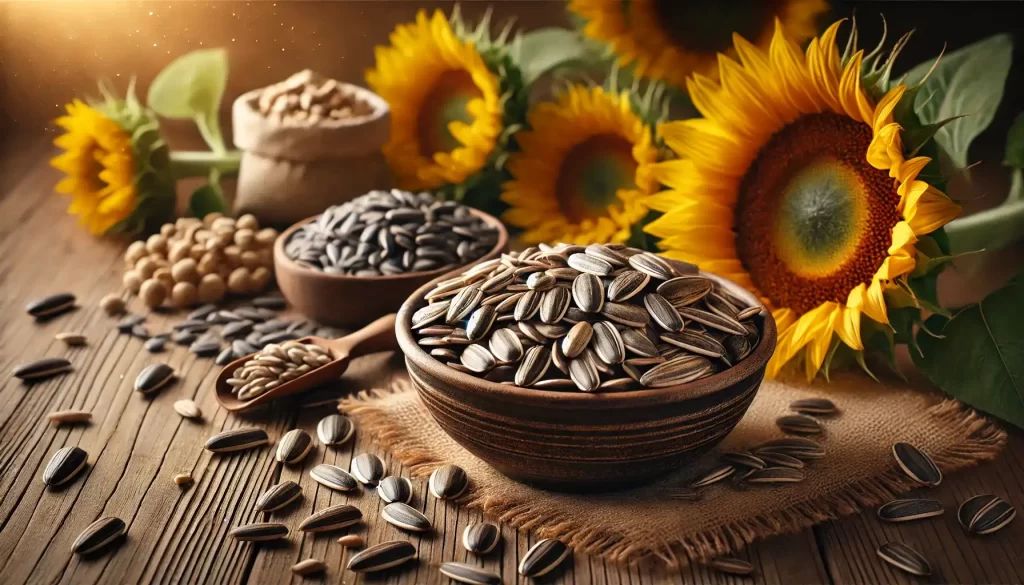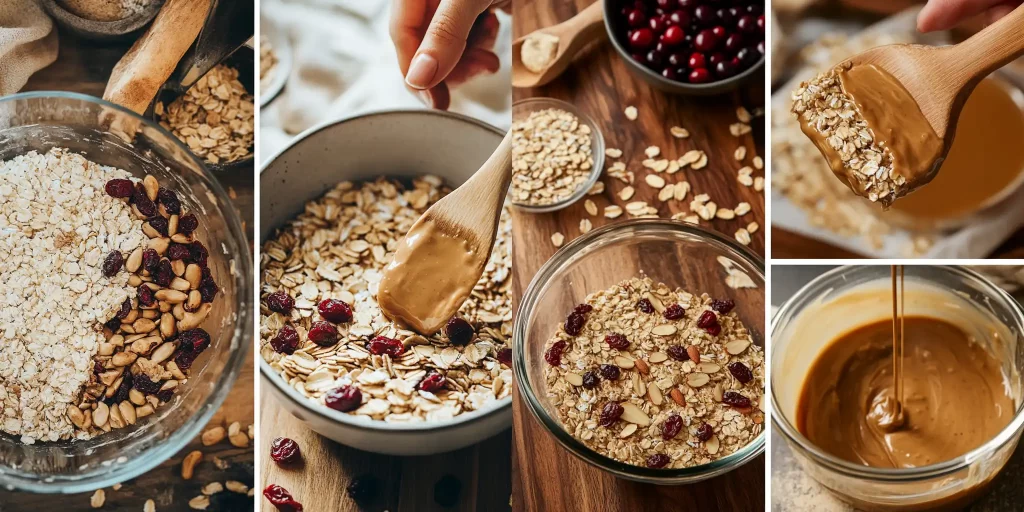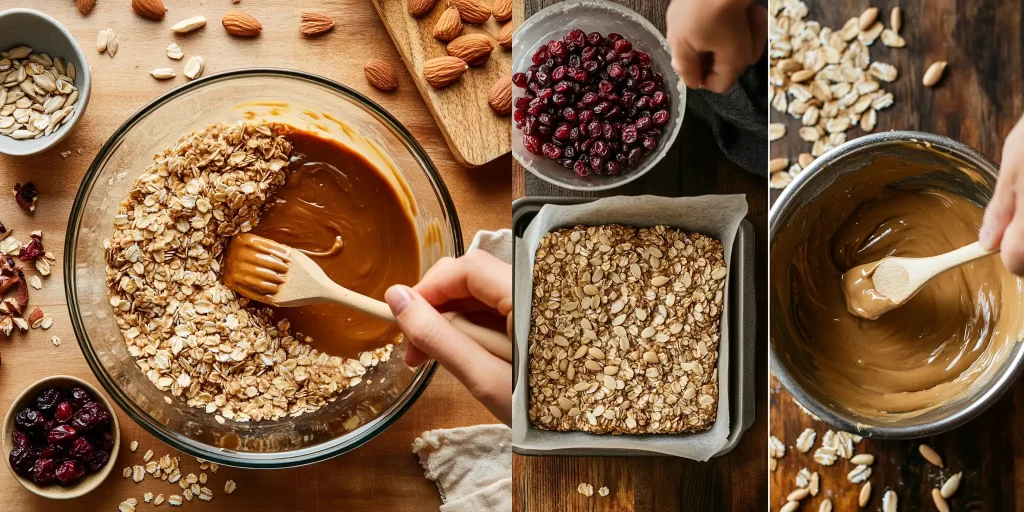Sunflower seeds, those tiny kernels nestled within the vibrant yellow petals of sunflowers, are far more than just a snack. Packed with an impressive array of nutrients, these seeds have become a favorite among health-conscious individuals and food enthusiasts alike.
Rich in vitamins, minerals, and healthy fats, sunflower seeds are a nutritional powerhouse that can support various aspects of health. Whether enjoyed as a crunchy snack, sprinkled over salads, or blended into smoothies, they offer endless possibilities for culinary creativity.
In this guide, we’ll explore the incredible health benefits of sunflower seeds, their nutritional value, and creative ways to incorporate them into your daily meals. From heart health to glowing skin, you’ll learn why sunflower seeds deserve a place in your pantry.

What Makes Sunflower Seeds Nutritious?
Sunflower seeds are small in size but mighty in nutrition. These nutrient-dense seeds offer an incredible combination of vitamins, minerals, and healthy fats that can enhance your overall well-being. Here’s why they stand out as a superfood:
1. Rich in Healthy Fats
Sunflower seeds are high in polyunsaturated and monounsaturated fats, including omega-6 fatty acids, which are essential for cell function and brain health. These healthy fats also help maintain cholesterol balance, supporting heart health.
2. Vitamin E Powerhouse
One of the most significant nutrients in sunflower seeds is vitamin E, a potent antioxidant. It protects cells from oxidative damage, boosts the immune system, and promotes healthy skin by fighting free radicals.
3. Magnesium for Energy
Magnesium, a mineral found abundantly in sunflower seeds, plays a crucial role in muscle function, bone health, and energy production. A single serving can help meet your daily magnesium needs.
4. Packed with Protein
Sunflower seeds are an excellent source of plant-based protein, providing essential amino acids that aid in muscle repair and growth. This makes them a valuable addition to vegetarian and vegan diets.
5. Selenium for Immunity
The high selenium content in sunflower seeds enhances immune response and reduces oxidative stress, supporting thyroid health and preventing chronic diseases.
6. Fiber for Digestion
Sunflower seeds contain dietary fiber, which aids digestion, promotes gut health, and keeps you feeling fuller for longer, aiding in weight management.
Health Benefits of Sunflower Seeds
Sunflower seeds are more than just a tasty snack—they’re a treasure trove of health benefits. Let’s take a closer look at how they can improve your well-being:
1. Supports Heart Health
- The combination of healthy fats, magnesium, and phytosterols in sunflower seeds helps lower bad cholesterol (LDL) levels and reduce inflammation, promoting a healthy heart.
2. Boosts Immune Function
- The antioxidant properties of vitamin E and selenium enhance your body’s ability to fight off infections and protect against chronic diseases.
3. Aids in Weight Management
- Sunflower seeds’ high fiber and protein content help control appetite, keeping you satisfied for longer and reducing unnecessary snacking.
4. Improves Skin Health
- Vitamin E and essential fatty acids nourish the skin, reducing dryness and promoting a radiant complexion. The antioxidants also combat skin aging caused by environmental stressors.
5. Supports Bone Health
- Magnesium, phosphorus, and copper in sunflower seeds work together to strengthen bones and maintain muscle health.
6. Reduces Inflammation
- Sunflower seeds contain anti-inflammatory compounds that may help manage conditions like arthritis and promote overall joint health.
How to Enjoy Sunflower Seeds
Sunflower seeds are incredibly versatile, making them easy to incorporate into your meals and snacks. Here are some creative ways to enjoy them:
1. As a Snack
- Roasted and lightly salted sunflower seeds make a satisfying and nutrient-rich snack. Keep a pack handy for on-the-go munching.
2. In Salads
- Sprinkle sunflower seeds over fresh salads for a delightful crunch and a boost of flavor and nutrition.
3. In Baked Goods
- Add sunflower seeds to bread, muffins, or granola bars to enhance texture and provide a nutty flavor.
4. In Smoothies
- Blend sunflower seed butter or raw seeds into smoothies for a creamy, protein-packed drink.
5. As a Topping
- Garnish soups, oatmeal, or yogurt with sunflower seeds to add texture and nutrients.
6. In Trail Mix
- Combine sunflower seeds with dried fruits, nuts, and dark chocolate chips to create an energy-boosting trail mix.
7. Make Sunflower Seed Butter
- Process roasted sunflower seeds into a creamy butter alternative to peanut or almond butter.
Potential Downsides and Precautions
While sunflower seeds offer numerous health benefits, it’s essential to consume them mindfully. Here are some considerations to keep in mind to enjoy sunflower seeds safely and healthily:
1. Caloric Content
Sunflower seeds are nutrient-rich but also calorie-dense. A small serving (about 1/4 cup) can contain around 200 calories. Overeating them, especially when snacking mindlessly, can lead to excessive calorie intake, potentially hindering weight management goals.
Tip: Measure your portions and enjoy them as part of a balanced diet to avoid overconsumption.
2. Sodium Levels
Many packaged sunflower seeds are heavily salted to enhance flavor, which can significantly increase your sodium intake. High sodium consumption may raise blood pressure and contribute to other health concerns.
Tip: Choose unsalted or lightly salted varieties to reduce sodium intake. If you enjoy salted seeds, balance them with low-sodium foods throughout the day.
3. Allergies
Though uncommon, sunflower seed allergies can occur and may cause reactions such as itching, swelling, or digestive discomfort. In rare cases, an allergic response could be severe.
Tip: If you’re trying sunflower seeds for the first time or suspect an allergy, start with a small amount and monitor for any adverse reactions. Consult a healthcare provider if needed.
4. Phytic Acid
Sunflower seeds naturally contain phytic acid, a compound that can bind to minerals like zinc and iron, reducing their absorption in the body. While not a significant concern for most people, excessive intake of foods high in phytic acid could impact nutrient availability, particularly in diets lacking variety.
Tip: Soaking or roasting sunflower seeds can reduce phytic acid content, making the minerals more bioavailable.
By understanding these potential downsides and taking simple precautions, you can fully enjoy the health benefits of sunflower seeds while minimizing any risks. Incorporate them into your diet thoughtfully, and they’ll continue to be a valuable and delicious part of your wellness journey.

Recipe: Sunflower Seed Energy Bars
These homemade sunflower seed energy bars are the perfect combination of nutrition and flavor. Packed with healthy fats, fiber, and protein, they’re a great on-the-go snack or post-workout treat.
Ingredients:
- 1 cup rolled oats
- 1/2 cup sunflower seeds (unsalted, raw or lightly roasted)
- 1/4 cup chopped almonds or other nuts (optional)
- 1/4 cup dried cranberries or raisins
- 2 tablespoons chia seeds (optional)
- 1/2 cup natural peanut butter or sunflower seed butter
- 1/3 cup honey or maple syrup
- 1 teaspoon vanilla extract
- A pinch of salt


Instructions:
FAQs About Sunflower Seeds
1. Are sunflower seeds good for weight loss?
Yes! Their high fiber and protein content help control hunger, making them an excellent addition to a weight-loss diet.
2. Can I eat sunflower seeds every day?
Absolutely, but stick to a moderate portion (about 1/4 cup) to balance calorie intake and maximize health benefits.
3. Are sunflower seeds good for skin health?
Yes, sunflower seeds are rich in vitamin E and essential fatty acids, which nourish the skin and protect it from oxidative damage.
4. Can sunflower seeds be eaten raw?
Yes, raw sunflower seeds are safe to eat and retain all their nutrients. Roasting enhances their flavor but slightly reduces nutrient levels.
5. Are sunflower seeds keto-friendly?
Yes, sunflower seeds are low in carbs and high in healthy fats, making them a great choice for keto diets.
Conclusion
Sunflower seeds are more than just a tasty snack—they are a treasure trove of nutrients that offer profound health benefits. Whether you’re looking to enhance your heart health, achieve glowing skin, or maintain a healthy weight, sunflower seeds are a versatile and accessible way to support your wellness goals.
Rich in essential vitamins like vitamin E, minerals such as magnesium and selenium, and healthy fats, these seeds play a pivotal role in promoting overall health. Their high fiber and protein content make them a satisfying addition to any diet, helping to manage hunger and fuel your body with sustainable energy.
One of the greatest advantages of sunflower seeds is their adaptability in the kitchen. From sprinkling them on salads to blending them into smoothies or incorporating them into baked goods, sunflower seeds add both texture and flavor to countless dishes. Their nutritional density and culinary flexibility make them a true superfood for all lifestyles.
However, like any food, moderation is key. Being mindful of portion sizes and opting for unsalted or lightly salted varieties ensures you reap their benefits without consuming excess calories or sodium.
By embracing sunflower seeds as part of your daily routine, you’re not just enjoying a delicious treat—you’re investing in your long-term health and well-being. So why not give these tiny seeds the spotlight they deserve? Add sunflower seeds to your meals, snacks, and recipes to experience their remarkable impact on your life.

